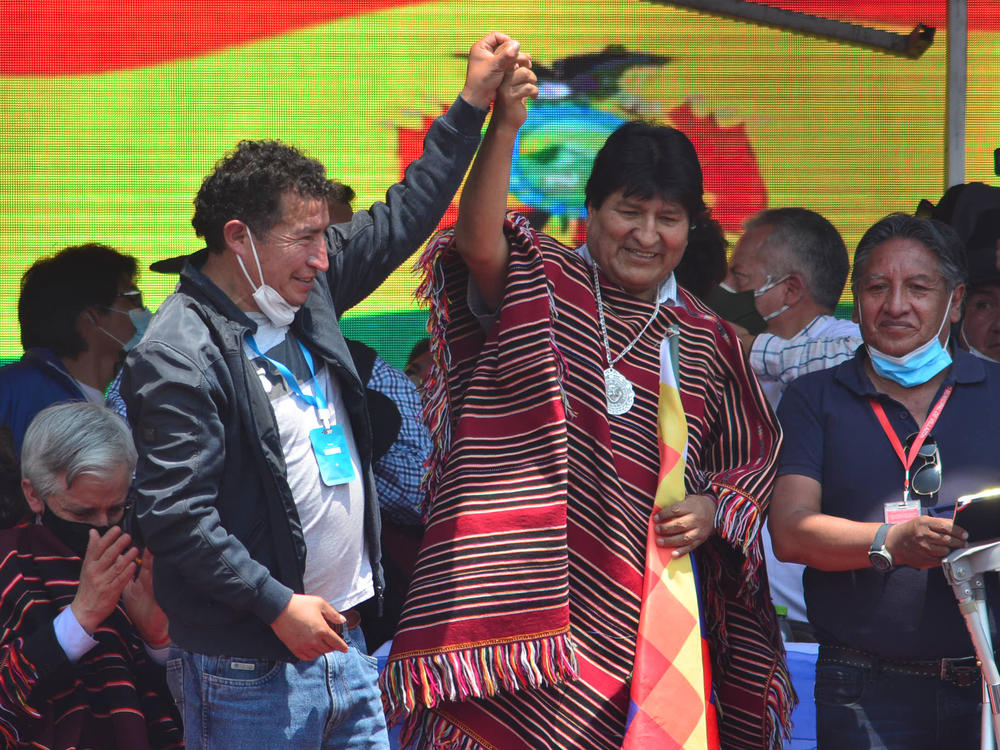Section Branding
Header Content
Evo Morales Makes Triumphant Return To Bolivia
Primary Content
Evo Morales, Bolivia's first Indigenous president and one of Latin America's most prominent leftists, has made a triumphant return to his home country after being controversially driven from power one year ago.
The socialist leader crossed the border from Argentina on Monday to begin a 625-mile odyssey through the heartland of his support, accompanied by a festive, flag-flourishing convoy of vehicles.
"Today is one of the most important days of my life," he wrote on Twitter as he embarked on his return journey. "To be returning to the country that I love fills me with happiness." He posted footage and pictures showing a large crowd waiting to welcome him home — including many Indigenous people in hats and brightly colored clothing.
Morales' return comes one day after Luis Arce, his former economy minister, was sworn in as Bolivia's president, delivering a major victory to the nation's socialist movement and its allies.
Arce, 57, surprised observers last month by winning outright in the first round of the presidential election. A soft-spoken, low-key figure, he assumes power in a nation that is politically polarized, and where the economy and health system have been severely battered by the coronavirus pandemic.
Morales crossed into Bolivia after receiving a ceremonial farewell at the La Quiaca border crossing from his host, friend and political ally, Argentine President Alberto Fernández.
This symbolic show of support for Morales from the leader of South America's second-largest nation will likely irk the neighborhood's more right-wing leaders, notably President Jair Bolsonaro in Brazil, who has been watching the region tilt leftward with disapproval.
Morales led Bolivia for nearly 14 years, but was ousted last year after a failed attempt to extend his rule by seeking a fourth term. He left office under pressure from the military, amid mass protests and allegations of election irregularities that are still hotly disputed. He later claimed he was the victim of a right-wing coup.
President Arce has sought to distance himself from his former boss, and has indicated that Morales will have no role in his government for now. However, Morales' high profile return is stoking speculation that the charismatic former president is making a come-back in more ways than one.
Copyright 2020 NPR. To see more, visit https://www.npr.org.

